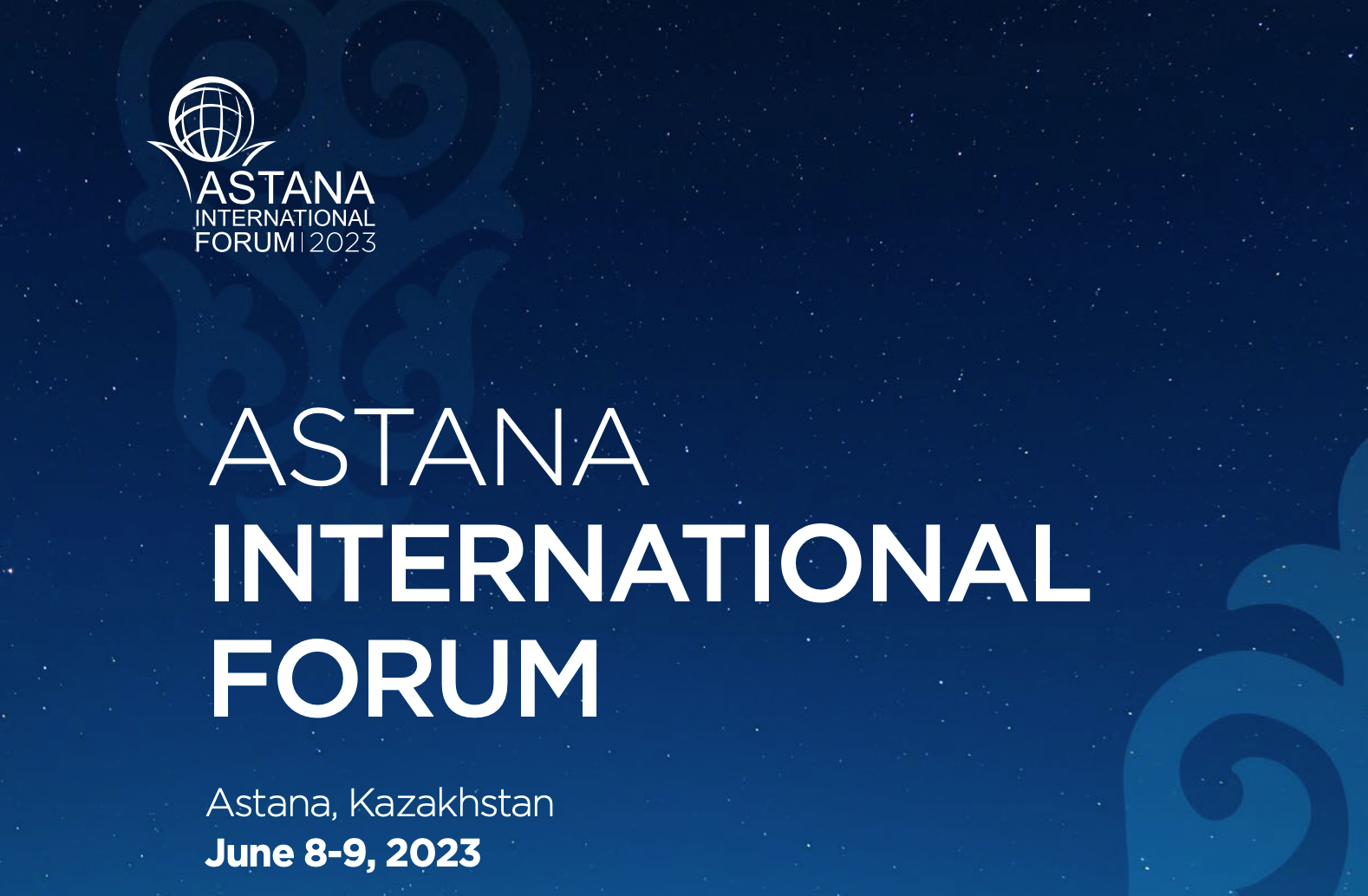ASTANA — With just a few weeks until the Astana International Forum (AIF) on June 8-9, the world is set for an engaging exchange of ideas and insights. The two-day forum will host dozens of international speakers and moderators at 40 panels and side events.

Photo credit: astanainternationalforum.org.
The forum will also focus on Central Asia and its role on the global stage amid new challenges.
The panel, Mapping Central Asian Connectivity, will look at not only the region’s role in rehabilitating the global supply chain, which has suffered dramatically in the last few years, and connecting the markets of the European Union and China but also its opportunities to reinvent itself as a major global player, modernizing its transport and logistics infrastructure.

Renaud Girard.
According to Renaud Girard from France’s Le Figaro, Central Asian connectivity is crucial in promoting economic development, regional stability, energy cooperation, trade integration, and cultural exchanges.
“By investing in connectivity projects and enhancing regional cooperation, Central Asian countries can unlock their full potential and reap the benefits of closer regional integration,” he said.
In his The Astana Times op-ed, President Kassym-Jomart Tokayev wrote that Kazakhstan remains committed to global cooperation, especially amid geopolitical confrontations.
“We will continue to defend international law and to pursue constructive engagement with nations across the world,” he said.
To mediate in such difficult times, the region must alleviate the negative consequences of the supply chain breakdown and adapt to new circumstances.
As a regional pillar country, Kazakhstan advocates for bringing the region’s countries together, inviting investors to engage in projects that would improve connectivity within the region, thus facilitating trade between Europe and China. It plans to increase the Trans-Caspian International Transport Route (TITR) capacity connecting China-Central Asia-Europe’s key corridor by introducing digital solutions and infrastructure upgrades.
During his state visit to China, Tokayev stressed that the Kazakhstan-Turkmenistan-Iran railway’s potential unveils excellent prospects for Central Asian countries as one of the shortest routes from East Asia to the countries of the Persian Gulf.
With such ambitious initiatives in place, concerns such as water security, economic restrictions, and territorial friction should be addressed not solely by Kazakhstan’s efforts but also by Central Asian countries.
Panel’s moderator Girard noted that demographic shifts, climate change, and disruption of supply chains, accompanied by rising geopolitical uncertainty motivate Central Asian states to map broader connectivity mechanisms.
“Considering all these trends, Central Asian states are entering a new stage of their political, economic, and social development. Today, for leaders of Central Asian countries, the key task is to find the right balance between reforms, connectivity, and security,” he concluded.

